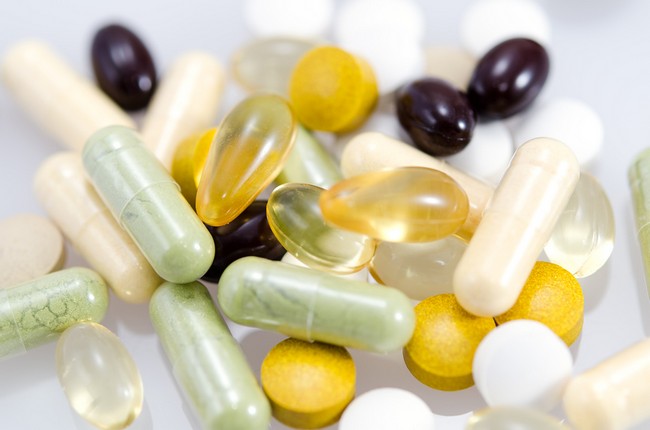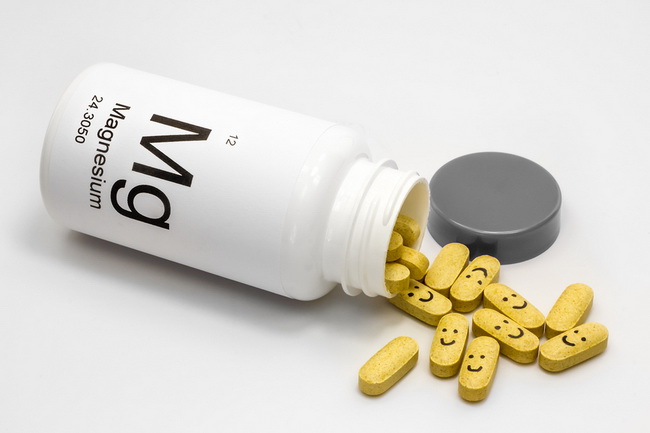- Make It Yourself Lavender Heart-Shaped Bath Bombs!
- 20 Things You Never Knew About “Down There”
- 12 Best Foods For Those Suffering From Arthritis Pain
- 12 Personal Hygiene Mistakes Almost Everyone Makes (Mom Never Told You About #4!)
- 15 Medicinal Plants And Herbs From The Cherokee People
- 12 Mind-Blowing Benefits Of Drinking Coconut Water During Pregnancy
- 12 Outstanding Winter Foods That Won’t Fatten You Up Like A Christmas Turkey
If I am Eating Right, Do I Still Need Supplements?

Photo credit: bigstock.com
Let’s get right to the point, the answer here is yes and probably.
You probably do, because even though we should be able to get all the nutrition from the food we eat, we usually don’t. Even under ideal conditions, such as food grown organically in nutrient rich soil and with pure water, it still loses much of its nutrition just being trucked from the fields to our tables.
Yes, because food by itself, no matter how pure and perfect it may be, is also only as good as what our bodies can absorb.
Let’s look at that one first. One of the things many people hope for when they eat healthy foods is that they will have a healthy immune system. A healthy immune system requires a digestive system that is working properly. Due to our typical Western diet, Candida overgrowth in our bodies is quite common and this leads to a compromised immune system. When our gut flora is out of balance, we can’t properly absorb all of the nutrients from the foods we are eating. So no matter how perfect our food might be, unless we are doing regular Candida detox programs, then yes, we will need supplements to help our bodies get more of the nutrition it needs.
Unfortunately, most of the produce that arrives at your store is picked before it is fully ripe, because farmers know that it’s a minimum of 14 days before it reaches your supermarket. Many warehouses gas the produce so that it looks ripe and lasts longer. For every day that produce is not being consumed, it’s gradually losing its nutritional content.
Now if you are one of the lucky ones who consumes a diet that has a wide variety of nutrient dense, raw, whole, organic foods, lots of raw green vegetables that are locally grown (or better still, grown in your own garden at home) and harvested at the right time so that you get maximum nutrition, and your immune system and digestive system are in great shape. If this is your life, then you probably don’t need supplements. However, that’s not to say that there aren’t still supplements that could benefit you anyway.
So now you go into one of those vitamin stores or the supplement aisle of your local organic health foods store and stare open mouthed at all the bottles. Which ones are you supposed to take and what brands are best? Ask 10 people and you will get 10 different answers. Ask a salesperson and they will most likely recommend something they have been told to recommend or something they get a commission from selling.
None of those options sound good, do they?
Continue to Page 2

Photo credit: bigstock.com
This is a case where knowing yourself, your weaknesses, and your habits will really pay off. For example, do you live in an area that gets little sunlight, especially in the winter months? Do you dislike dairy or are you vegan? Is your idea of a good time watching a movie, cooking, or looking through bookstores? Do you mostly exercise inside a gym? Chances are that you are not getting enough vitamin D. You can get this vitamin free from the sun, it’s true, but if you answered yes to the above questions, you aren’t outside enough to get enough natural sunshine. Consider taking 5,000 iu of vitamin D 5 days per week.
If you are constantly getting colds or the flu bug, even in the summer, or if you aren’t a big fan of citrus fruit, then you might want to consider taking a vitamin C supplement. Vitamin C supports your immune system. A supplement with about 1,000mg of vitamin C per day will go a long way towards helping your immune system.
Unless you love fish and you eat it three or four times per week, chances are you need a good quality fish or krill oil so that your body and brain gets plenty of the omega-3 fatty acids that are vital to our good health.
If you eat plenty of fermented foods and yogurt or raw dairy products then you are probably OK, but if you don’t, probiotics would be a good choice. A great deal of our health and immune system response lies in our digestive systems. Probiotics will go a long way towards restoring your gut flora. If you have taken antibiotics within the past 6 months, you need probiotics, as those antibiotics kill all bacteria in your bod, even the good stuff. Restore your natural balance by taking probiotic supplements.
Continue to Page 3

Photo credit: bigstock.com
And last, but certainly not least, even if none of the above apply to you, you should probably consider taking a magnesium supplement. More than 90 percent of Americans have been found to be deficient in this important mineral.
If you are still confused, you can consult your doctor, but chances are he isn’t the best source of information either. You might want to consider consulting a dietitian. Write down everything you eat for at least one week before your visit, and ask what supplements, if any, they recommend. They will take into account your age, weight, physical activity, and any health issues or prescription medication you are taking. Even if you have to pay for the visit yourself, it would be well worth it to know what you really need, rather than what someone wants to sell you.
Some supplements can interfere with prescription drugs, so if you are taking any type of prescription, be sure to consult your doctor before you begin taking any type of supplement, no matter how natural or safe you have been told it is.
Another thing to note: some websites that sell supplements don’t always offer you reliable evidence based advice. They are there to sell you something, don’t forget that.
Also, don’t take a multivitamin thinking that it will make up for a poor diet. It won’t. No pill can ever take the place of fresh fruits and vegetables.
Sources:
































